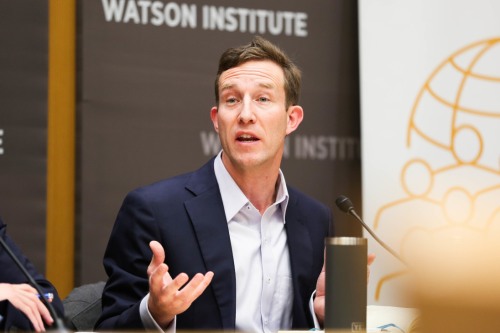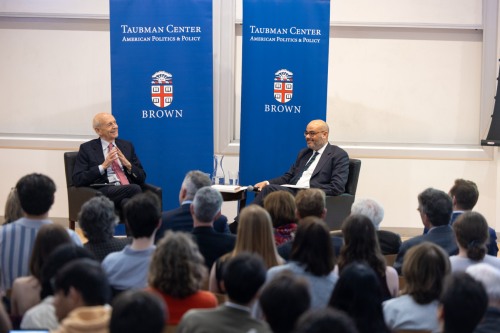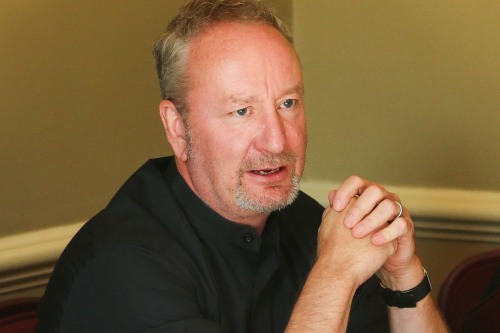From May 12-14, the Watson Institute's Master of Public Affairs (MPA) program held its annual Policy in Action (PIA) Symposium, in which students presented the results of work they did for government, nonprofit and private sector organizations over the spring semester.
Read Article
News From Watson
News from Watson features research, commentary and analysis from our faculty, staff and students. Discover different perspectives on and connections among the Institute's core research areas: development, security and governance.
News From Watson
News from Watson features research, commentary and analysis from our faculty, staff and students. Discover different perspectives on and connections among the Institute's core research areas: development, security and governance.
Recent News
The Watson Institute's Africa Initiative is the only U.S. partner in the Consortium for Advanced Research Training in Africa (CARTA), an organization dedicated to building a vibrant multidisciplinary African academy that produces world-class research.
Read Article
A distinguished economist and public affairs scholar, Friedman will lead a new school dedicated to advancing research and teaching on the world’s most pressing economic, political, social and policy challenges.
Read Article
This year’s Noah Krieger ’93 Memorial Lecture featured Justice Stephen Breyer, who discussed his time on the nation’s highest court and his pragmatic approach to the law.
Read Article
As global financial systems react to economic shifts, a new book from the director of the Rhodes Center for International Economics and Finance at Brown University explores the causes and impacts of inflation.
Read Article
Renowned human rights attorney and Watson Senior Fellow Malika Saada Saar has organized a series of events for the spring 2025 semester called Fireside Chats on Building AI for Humanity, featuring conversations with tech industry leaders about AI and human rights.
Read Article
On Thursday, February 27, seven Master of Public Affairs (MPA) Director's Fellows presented the results of a semester of research working with Watson faculty and other international and public affairs professionals.
Read Article
In July, Brown University's new school of international and public affairs will welcome its first cohort of Ph.D. Fellows in an expanded program. Watson is now accepting pre-dissertation and dissertation fellowship applications from Ph.D. students who are working on development, governance and security-related topics in its five core departments.
Read Article
"Looming in the Shadows of Lodz," a new exhibition by photographer Leslie Starobin, opens at 280 Brook St. on February 13. Sponsored by Art at Watson, the show features Starobin's photographs from a "roots journey" to Poland. Coinciding with the 80th anniversary of the liberation of Auschwitz-Birkenau, "Looming in the Shadows of Lodz" illustrates how traumatic memories are passed down through generations.
Read Article
News from Watson
Spring 2025 events at Watson
This spring, an engaging lineup of events will offer diverse perspectives on today’s most pressing issues.
Read Article
News from Watson
Spring 2025 practitioner-led study groups
These not-for-credit study groups provide an opportunity for students to delve deeply into topics and apply theory and research to real world challenges. Enrollment in each group is limited to 25 students.
Read Article
News from Watson
Top ‘News from Watson’ stories of 2024
Whether you missed them the first time or want to revisit them now, we countdown our most-read stories this year.
Read Article












